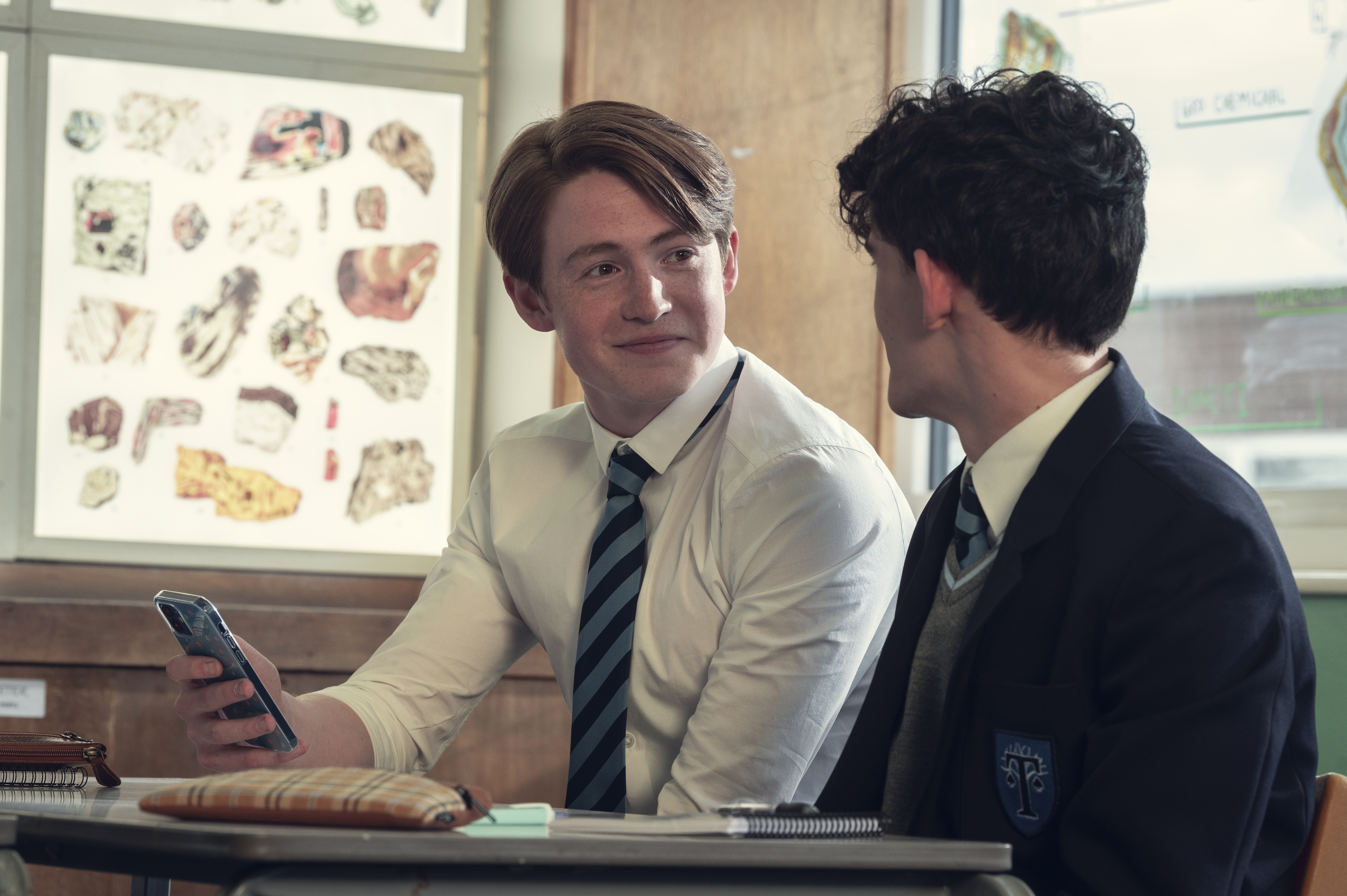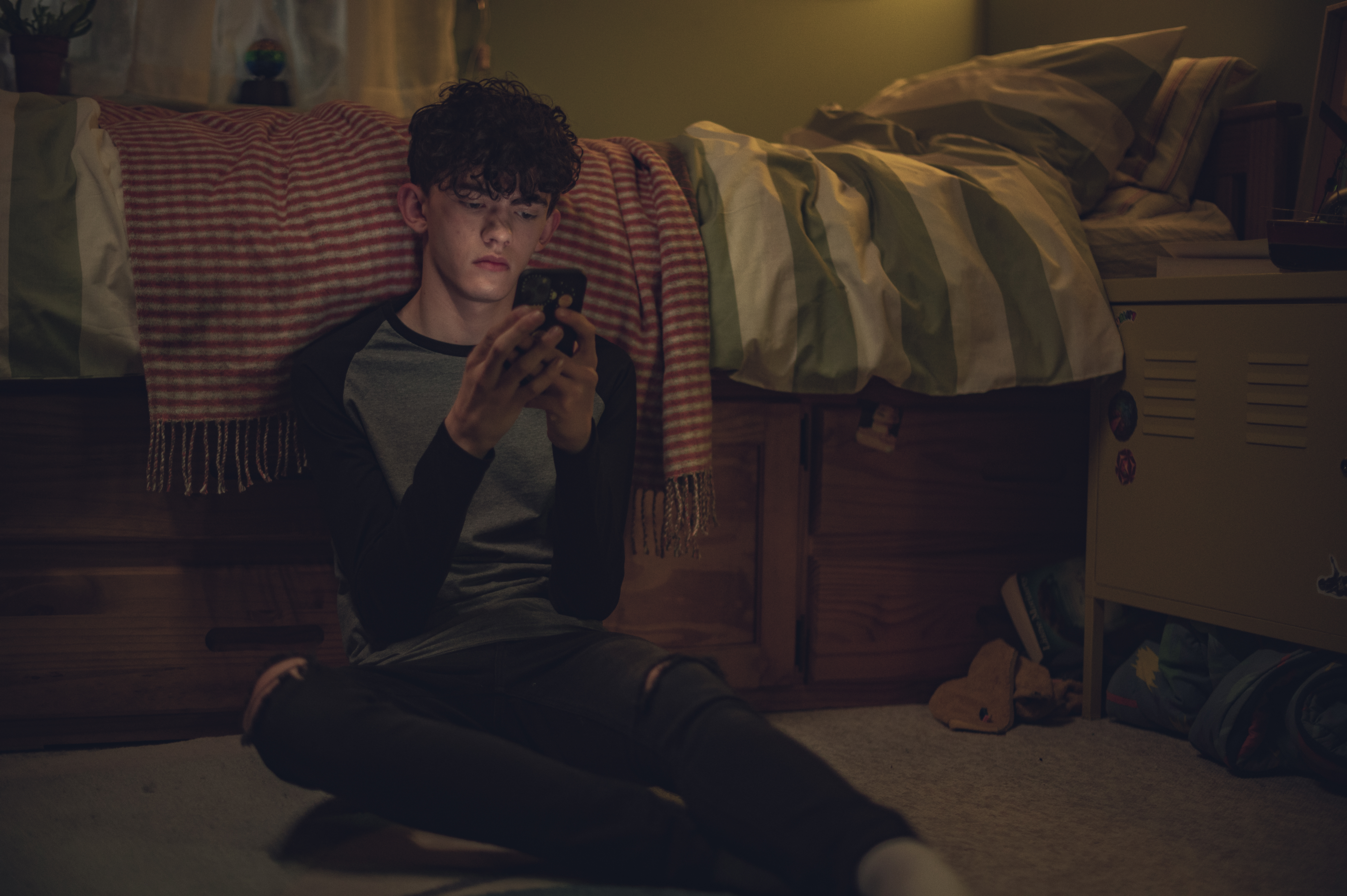
Heartstopper is the graphic novel which has been gradually transforming the lives of young LGBT people since its publication in 2018. Now, it’s found its way on to Netflix, about to reach an even bigger audience and its impact is, without a shadow of a doubt, going to be unstoppable.
For those yet to dive into the world of Alice Oseman’s series of teenage novels, , two young LGBTQ+ schoolboys falling in love, conquering their shame, fear and bullies to bravely live as their authentic selves.
Charlie is an out gay teen after unwillingly being forced out of the closet, while Nick is a popular jock on the rugby team, surrounded by toxic masculinity, and the very real and relatable pressure of battling with his sexuality while ‘fitting in’.
Charlie and Nick are surrounded by various wonders from the LGBTQ+ community: two lesbians, Tara and Darcy pave the way for Nick to confront his own complicated feelings by snogging at a school dance and going Instagram official; Elle is a trans female who moves from the all boys school to its neighbouring all girls comprehensive and is alive with hope, romance and lust for cis straight male Tao – a storyline unrecognisable in British television thus far.
Over the course of eight episodes, Charlie builds his confidence after being tortured in a secret relationship with the school bully, and with the help of Nick he finds himself. Subsequently, Nick discovers his strong feelings for Charlie go far beyond a friendship.
Heartstopper is an achievement which would have been unimaginable just a few years ago.
Alice identifies as a queer woman but captures the LGBTQ experience for men in high school with such authenticity that few, if any, writers have ever really managed to do so before her.
While Heartstopper is ultimately a story of promise, the positive tale all LGBTQ+ should have been equipped with growing up, Alice hits every layer of anxiety experienced by queer young adults, arguably particularly male queer teenagers.
Between Charlie and Nick, they go through all the unavoidable LGBTQ+ anxieties – guilt for just being, fear for existing, and having the biggest crush on a boy you know deep down will never love you back. Only, this time, he does.
Following the aesthetic of the comic – often frame by frame – animated sparks burst between them, butterflies flutter around them when they get excited, and anyone who experienced or even dreamed of experiencing the same teenage romance will feel every single spark and butterfly too.
Newcomer Joe Locke remarkably never had acting experience before Heartstopper but is adorable, and instantly lovable as wide-eyed ‘gay geek’ Charlie. Kit Connor (who played a young Elton John in the biopic Rocketman), balances Nick’s charm, vulnerability, insecurity and affection for Charlie with impressive wisdom and empathy. Together, their chemistry is exactly why fans have fallen so head over heels with Nick and Charlie already.
They’re surrounded by a diverse cast that feels organic, packed with the heart and joy that makes Heartstopper unmissable.
When It’s A Sin broke records for Channel 4, finally bringing attention to the LGBTQ+ community – its pain, its fight and its unity – it was only a matter of time before another LGBTQ+ series would follow in the path it laid out for other monumental television to follow.

Heartstopper is the perfect show to keep up that momentum but through a totally different approach.
While It’s A Sin superbly thrust the Aids pandemic in the spotlight during another coincidentally timed pandemic, Heartstopper is the more hopeful education of the LGBTQ+ experience that was destined to come next.
Every single detail of Heartstopper has been carefully, respectfully and truthfully laid out – from its authentic casting (each casting call was restricted to the exact sexual identity and ethnicity of the characters in Alice’s literary series), to the pioneering story-telling of the everyday experiences LGBTQ+ have lived through, but never get told.
Nick’s navigation to realise he is bisexual is explored with depth and time that has genuinely never been rivalled by any television series – LGBT or otherwise before it; his eventual coming out is a masterclass for any parent with any concerns or questions about rising LGBTQ+ children; Charlie’s inner turmoil is the most articulate example of gay trauma without being hammed up by tragedy I’ve ever seen; Elle is a confident Black trans female teenager whose narrative isn’t solely driven by her transition or trauma – each are role models that should have had their time to shine long before now, but will be blazing trails for LGBTQ+ teenagers for decades to come.
Many LGBTQ+ people will never know what it would have been like to grow up with a series like Heartstopper, to have been heard, to have their teenage years recognised and celebrated.
Thankfully, the LGBTQ+ generations going forward will. They’ll be taught that being queer isn’t a life destined for doom, tragedy or even death, but your life can and hopefully will be packed with love, friendship, a chosen family who would do anything for you.
Heartstopper is a life-changing moment for the LGBTQ+ people of today and all the ones who will follow.
Heartstopper is available to stream on Netflix from April 22.




















